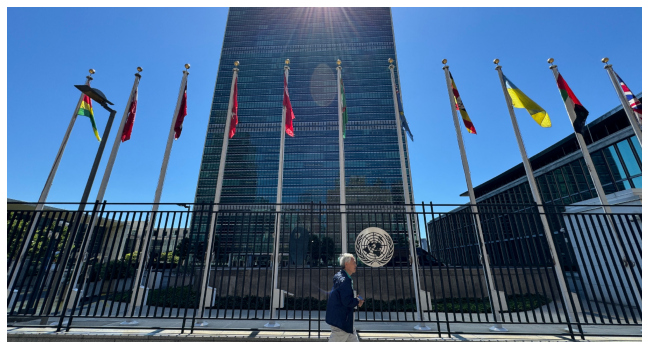The United Nations Office for the Coordination of Humanitarian Affairs (UNOCHA) has announced its decision to cease operations in Nigeria, amid a broader global restructuring triggered by financial constraints.
This was disclosed on Wednesday by Nigeria’s Minister of Humanitarian Affairs and Poverty Reduction, Professor Nentawe Goshwe, during a Validation Workshop on the Anticipatory Action Framework, held at the National Counter Terrorism Centre, Office of the National Security Adviser in Abuja.
According to the minister, “The UN Resident and Humanitarian Coordinator, Mohamed Fall, had informed me about the decision,” he said.
Professor Goshwe expressed deep concern over the move, particularly as the country continues to grapple with the devastating effects of flooding and insecurity on citizens’ livelihoods.
He, however, praised UNOCHA for its efforts in Nigeria over the years, especially in the conflict-ravaged Northeastern region.
He said, “UNOCHA has made significant interventions in Nigeria, and their support has been crucial.”
Describing the agency’s planned withdrawal as regrettable, the minister noted, “It is unfortunate that UNOCHA is pulling out at a time when humanitarian needs remain daunting across the country.”
Despite this setback, Professor Goshwe reaffirmed the Tinubu administration’s commitment to mitigating disasters and providing support to affected communities.
“President Bola Tinubu remains committed to addressing the menace of floods and other disasters confronting our people,” he emphasized.
The development comes on the heels of a major global downsizing announced by UNOCHA due to a sharp decline in funding. On Friday, the head of the agency, Tom Fletcher, shared a letter on its website outlining a global retrenchment plan.
He wrote, “The humanitarian community was already underfunded, overstretched and literally, under attack. Now, we face a wave of brutal cuts.”
Fletcher attributed the decision to a $60 million funding shortfall projected for 2025, alongside escalating humanitarian needs across the world.
He clarified that the cutbacks are driven by fiscal constraints and not a reflection of declining needs.
“The reductions stem from financial constraints rather than diminished needs,” Fletcher emphasized.
UNOCHA has revealed that it will either withdraw from or scale back its operations in nine countries, including Nigeria, Cameroon, Colombia, Eritrea, Iraq, Libya, Pakistan, Turkey, and Zimbabwe.
The aim, the agency said, is to focus on “dynamic and full responses” in fewer, more critically affected locations.
Najwa Mekki, OCHA’s Director of Communications, noted that approximately 500 staff members will be laid off from the agency’s 2,600-strong global workforce.
The move follows earlier austerity steps such as a hiring freeze and travel limitations, which reportedly saved $3.7 million.
While the agency navigates this challenging financial landscape, the implications of its exit from Nigeria are expected to be far-reaching, especially for vulnerable communities still dependent on international humanitarian support.

















